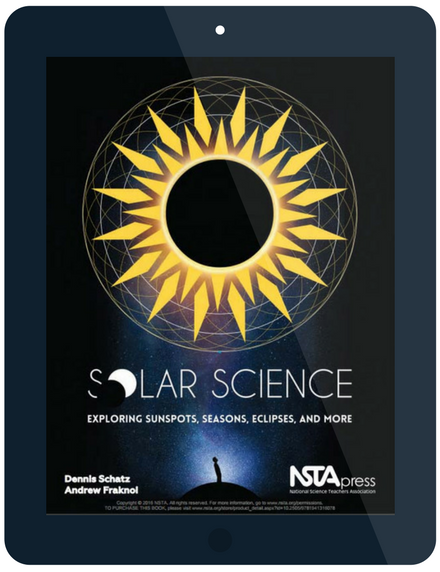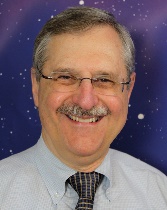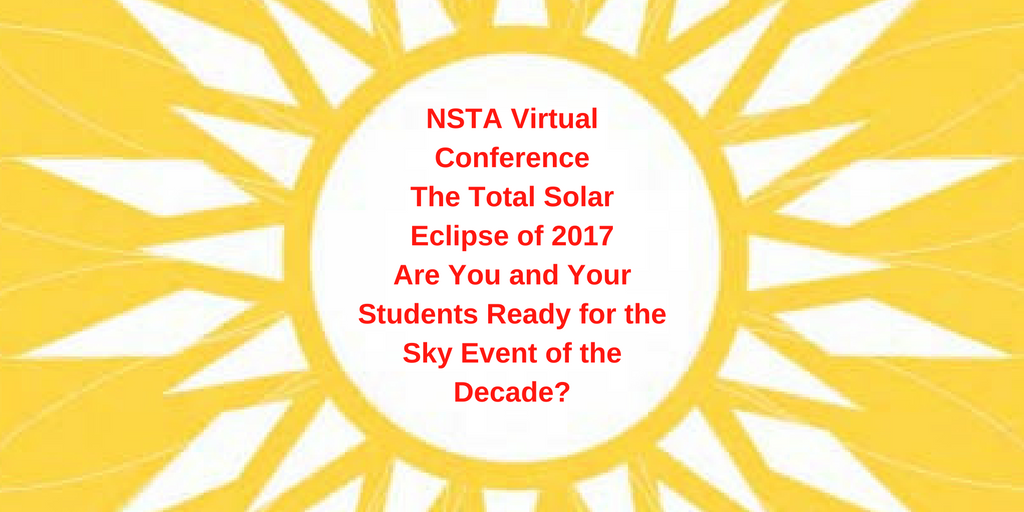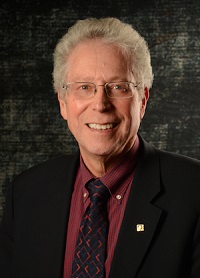Are You Planning Schoolwide or Community-Wide Programs for the August 2017 Solar Eclipse
By Guest Blogger
Posted on 2016-09-30
 Andrew Fraknoi and I, co-authors of the new NSTA Press book Solar Science: Exploring Sunspots, Seasons, Eclipses and More, want to learn more about what teachers plan to do for the August 21, 2017, eclipse. We are specifically interested in learning about teachers who plan to encourage their students to provide programming (e.g. showing safe observing techniques, demonstrating what causes eclipses) for other students in the school, or for members of the community. Please send a brief description of your plans to Dennis Schatz at schatz@pacsci.org if you will be doing schoolwide or community-wide programs. We plan to produce a resource guide of good ideas for educators who want to serve their schools and community in this way. (If the eclipse is not yet on your radar, you can read more about it in NSTA’s free booklet.)
Andrew Fraknoi and I, co-authors of the new NSTA Press book Solar Science: Exploring Sunspots, Seasons, Eclipses and More, want to learn more about what teachers plan to do for the August 21, 2017, eclipse. We are specifically interested in learning about teachers who plan to encourage their students to provide programming (e.g. showing safe observing techniques, demonstrating what causes eclipses) for other students in the school, or for members of the community. Please send a brief description of your plans to Dennis Schatz at schatz@pacsci.org if you will be doing schoolwide or community-wide programs. We plan to produce a resource guide of good ideas for educators who want to serve their schools and community in this way. (If the eclipse is not yet on your radar, you can read more about it in NSTA’s free booklet.)
Thanks for your help.
Dennis Schatz and Andrew Fraknoi
P.S. If you are still trying to determine what to do to prepare your students to experience the eclipse, you may want to participate in NSTA’s Virtual Conference: Total Solar Eclipse of 2017 – Are You and Your Students Ready for the Sky Event of the Decade?
Dennis Schatz was for many years the Senior Vice President of the Pacific Science Center in Seattle, and is the author of 23 science books for children. He was program director for science education at the National Science Foundation from 2011 to 2015, before returning to Pacific Science Center as Senior Advisor. (See www.dennisschatz.org for more information.)
 Andrew Fraknoi is the Chair of the Astronomy Department at Foothill College in the San Francisco Bay Area and a former Executive Director of the Astronomical Society of the Pacific. He is the lead author of a college astronomy textbook and appears frequently on local and national radio programs explaining astronomical developments.
Andrew Fraknoi is the Chair of the Astronomy Department at Foothill College in the San Francisco Bay Area and a former Executive Director of the Astronomical Society of the Pacific. He is the lead author of a college astronomy textbook and appears frequently on local and national radio programs explaining astronomical developments.
Solar Science is published by NSTA Press and is available in the NSTA Science Store.
The mission of NSTA is to promote excellence and innovation in science teaching and learning for all.
Future NSTA Conferences
-
2016 Area Conferences
2016 National Conference
Follow NSTA
Disclaimer: The views expressed in this blog post are those of the author(s) and do not necessarily reflect the official position of the National Science Teaching Association (NSTA).




